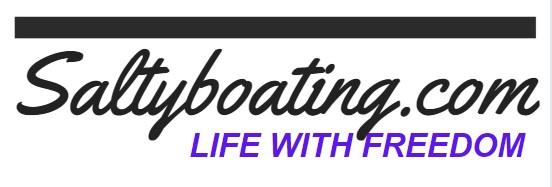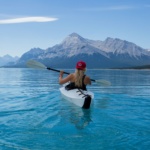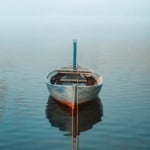Have you ever wondered if there are any limitations on where you can fish when you rent a pontoon boat? Well, it’s a question that often pops up in the mind of fishing enthusiasts like yourself. In this article, we will explore whether there are any restrictions on fishing locations when you opt for a pontoon boat rental. So, get ready to set sail and discover the possibilities that await you on the open waters!
Legal restrictions
Boating regulations
When it comes to renting a pontoon boat for fishing, there are several legal restrictions that you need to be aware of. Boating regulations vary by state and are in place to ensure the safety of both boaters and the environment. It is important to familiarize yourself with the boating regulations in your area, as they determine things like speed limits, navigation rules, and required safety equipment. Violating these regulations can result in fines or even the suspension of your boating privileges.
Fishing regulations
In addition to boating regulations, there are also specific fishing regulations that you must adhere to when fishing with a pontoon boat rental. These regulations are put in place to protect fish populations and maintain the overall health of the aquatic ecosystems. They often include restrictions on fish species, size limits, bag limits, and certain fishing methods. It is crucial to be familiar with the fishing regulations in your area to ensure that you are fishing within the legal limits.
Protected areas
Protected areas, such as marine sanctuaries or wildlife refuges, may have restrictions on fishing activities, including where you can fish and what you can catch. These areas are designated to protect sensitive habitats and endangered species. It is important to check whether the waters you plan to fish in are part of a protected area and familiarize yourself with any restrictions that apply. Fishing in protected areas without proper authorization can lead to serious penalties and harm the delicate balance of the ecosystem.
Size and capacity limitations
Maximum occupancy
Pontoon boats have specific size and capacity limitations that must be followed to ensure the safety of everyone on board. These limitations are determined by the manufacturer and adhere to set standards. The maximum occupancy of a pontoon boat is typically calculated based on the number of passengers and the weight capacity of the boat. Exceeding these limitations can compromise the stability and operation of the boat, putting you and your fellow passengers at risk.
Boat size restrictions
Certain bodies of water may have restrictions on the size of boats that can be used for fishing. These restrictions can vary depending on the specific waterway and are often in place to prevent overcrowding and protect the environment. Make sure to check if there are any boat size restrictions in the area you plan to fish, as failing to comply with these regulations can result in fines and penalties.
Weight limitations
Pontoon boats are designed to handle a specific amount of weight, which includes passengers, fishing gear, and additional equipment. Exceeding the weight limitations can negatively impact the boat’s performance and stability, potentially leading to accidents or damage to the boat. Always consider the weight limitations of the pontoon boat you are renting and ensure that you stay within the prescribed limits to ensure a safe and enjoyable fishing experience.
Launch and access points
Designated boat ramps
To launch your pontoon boat for fishing, you will typically need to utilize designated boat ramps. These ramps are strategically located near water bodies and provide a safe and convenient access point for launching your boat. It is important to check whether the area you plan to fish has designated boat ramps and if there are any regulations or permits required for their use. Using unauthorized launch points can result in fines and may not provide safe access to the water.
Permitted launch areas
Some areas may require permits for launching boats, even at designated boat ramps. These permits are often issued by local authorities and may have specific requirements and restrictions. It is crucial to obtain the necessary permits and follow any regulations related to launching your pontoon boat. Failure to comply with these requirements can lead to legal consequences and may limit your ability to access certain fishing locations.
Private dock access
If you have access to a private dock, you may be able to launch your pontoon boat for fishing from there. However, it is essential to check if there are any restrictions or regulations surrounding private dock access for boating activities. Some communities or associations may impose limitations on boat sizes, times of use, or require permits. Always respect private property rights and obtain any necessary permissions beforehand to avoid potential legal issues.
Navigational limitations
Shallow water restrictions
When fishing with a pontoon boat, it is important to be mindful of shallow water restrictions. Shallow water areas can be easily damaged by boat propellers and disturb the delicate habitats and aquatic life that inhabit those areas. Many water bodies have marked shallow water zones or restrictions in place to prevent damage. Always pay attention to navigational markers and avoid venturing into shallow areas to protect both the environment and the integrity of your pontoon boat.
Narrow waterways
Navigating narrow waterways can be challenging, especially with larger pontoon boats. Some areas may have restrictions or guidelines in place for boaters to follow when navigating narrow waterways. These restrictions may include speed limits, right-of-way rules, or specific routes to ensure the safety of all boaters. It is important to familiarize yourself with any navigation restrictions in narrow waterways and exercise caution to avoid accidents or damage to your pontoon boat.
Debris and obstacles
When fishing with a pontoon boat, it is crucial to be aware of potential debris and obstacles in the water. Floating logs, rocks, or other submerged objects can pose a significant risk to your boat’s hull and propellers. Avoid areas with known debris or be especially cautious when navigating through them. Additionally, be mindful of any marked areas or buoys that indicate submerged obstacles. Taking preventative measures can help protect your pontoon boat from damage and ensure a safe fishing experience.
Species-specific restrictions
Protected fish species
Some fish species may be protected in certain areas due to concerns about overfishing or their conservation status. Protected fish species may have specific regulations regarding catch limits, size restrictions, or even complete fishing bans. It is crucial to be aware of any protected fish species in the waters you plan to fish and abide by the regulations set forth to ensure their preservation. Ignoring these restrictions can have detrimental effects on fish populations and result in legal consequences.
Prohibited fishing areas
Certain areas may prohibit fishing altogether to protect sensitive ecosystems, habitats, or endangered species. These areas may include marine sanctuaries, closed ecological reserves, or specific zones designated for research purposes. It is essential to familiarize yourself with any prohibited fishing areas in the region you plan to fish and respect these restrictions. Fishing in prohibited areas can lead to severe penalties and harm the delicate balance of the environment.
Catch and release rules
Catch and release rules are often in place to promote sustainable fishing practices. These rules may require anglers to release certain fish species back into the water unharmed, regardless of their size or catch limit. To practice responsible fishing, it is important to be familiar with the catch and release rules for the specific fish species you may encounter. Proper handling techniques, such as using barbless hooks and minimizing handling time, can increase the chances of survival for released fish and contribute to the conservation efforts.
Time and season restrictions
Closed fishing seasons
Many areas have closed fishing seasons for certain fish species, during which fishing for those species is prohibited. These closed seasons are typically implemented to protect spawning or breeding populations and ensure their conservation. It is crucial to be aware of any closed fishing seasons in the area you plan to fish and abide by the regulations. Violating closed fishing seasons can have negative impacts on fish populations and result in legal consequences.
Limited fishing hours
In some locations, fishing may be limited to specific hours of the day or night. These restrictions aim to manage fishing pressure and prevent overfishing during vulnerable times or to balance recreational fishing with other activities in the area. Make sure to familiarize yourself with any limited fishing hours in the waters you plan to fish and ensure compliance to avoid penalties or conflicts with other boaters.
Night fishing regulations
Night fishing can provide a unique and exciting experience, but it is essential to be aware of any specific night fishing regulations in your area. Some places may have restrictions on where and when you can fish at night to ensure the safety of both anglers and aquatic life. It is advisable to check for any specific night fishing regulations, such as areas designated for night fishing or requirements for lighting on your pontoon boat. Adhering to these regulations will contribute to a safe and enjoyable night fishing adventure.

State and local regulations
Specific state laws
Each state has its own set of boating and fishing regulations that must be followed. It is important to familiarize yourself with the specific laws and regulations of the state you plan to fish in. These regulations may cover various aspects, including speed limits, equipment requirements, bag limits, and fishing methods. Ignorance of state laws is not an excuse, so take the time to educate yourself on the specific regulations to ensure compliance during your fishing excursions.
Regional fishing restrictions
Within a state, there may be specific regional fishing restrictions that apply to certain water bodies or areas. These regional restrictions may include special regulations, such as different bag limits or restricted seasons, that are tailored to address the specific needs of those areas. Make sure to research and understand any regional fishing restrictions that apply to the waters you plan to fish. Compliance with these regulations is important in maintaining the overall health and sustainability of the fish populations in each region.
Local fishing ordinances
In addition to state and regional regulations, local jurisdictions may also have their own fishing ordinances in place. These local fishing ordinances can be more specific and may include additional restrictions or requirements. It is crucial to research and familiarize yourself with any local fishing ordinances in the areas you plan to fish. Failure to comply with these ordinances can result in penalties and may limit your access to certain fishing locations.
Commercial fishing limitations
Commercial fishing permits
Commercial fishing with a rented pontoon boat is subject to additional regulations and limitations. To engage in commercial fishing activities, you will typically need to obtain specific permits and licenses. These permits may require additional training or compliance with regulations that ensure sustainable and responsible fishing practices. If you plan to use a pontoon boat for commercial fishing, it is crucial to research and understand the requirements for commercial fishing permits in your area.
Commercial fishing zones
Certain areas may have designated commercial fishing zones, which are reserved for commercial fishing activities. These zones are often established to separate commercial fishing operations from recreational boating and fishing, ensuring the safety of both groups. Before engaging in commercial fishing with a pontoon boat, it is important to determine whether there are any designated commercial fishing zones in the area you plan to operate. Violating commercial fishing zone restrictions can result in penalties and conflicts with other boaters.
Restrictions for commercial boats
Commercial fishing boats may have specific restrictions that do not apply to recreational boats. These restrictions can include limitations on gear types, quotas, or access to certain fishing grounds. If you plan to use a rented pontoon boat for commercial fishing, it is crucial to understand and adhere to these restrictions. Non-compliance can not only result in legal consequences but can also undermine the sustainability and integrity of commercial fishing operations.
Safety considerations
Weather conditions
One of the most critical factors to consider when fishing with a pontoon boat is the weather conditions. Weather can change rapidly on the water, and being unprepared for adverse conditions can be dangerous. Before heading out, check the weather forecast, paying attention to wind speed, wave height, and potential storms. If unfavorable conditions are predicted, it is wise to postpone your fishing trip. Always prioritize your safety and the safety of your fellow passengers by monitoring and responding appropriately to changing weather conditions.
Water depth and visibility
Understanding the water depth and visibility is essential for safe boating and fishing. Pontoon boats have a shallow draft, meaning they require a certain water depth to operate properly. If the water is too shallow, you run the risk of running aground or damaging your boat’s propellers. Additionally, clear water visibility is crucial for identifying submerged hazards and navigating safely. Be aware of the water conditions in the area you plan to fish, and exercise caution in shallow or murky waters to protect both your boat and the environment.
Distance from shore
When fishing with a pontoon boat, it is important to maintain a safe distance from the shore. Staying too close to shore can pose risks, including potential collision with other boaters, swimmers, or submerged hazards. It is recommended to follow local guidelines or regulations regarding the minimum distance from shore that pontoon boats should maintain. By maintaining a safe distance, you can ensure optimal safety and minimize the chances of accidents or damage to your pontoon boat.
Environmental restrictions
No-wake zones
No-wake zones are areas where boaters are required to operate at a slow speed to minimize the wake created by their boat. These zones are implemented to protect the shorelines, docks, and other boats, as excessive wakes can cause damage and pose safety hazards. It is important to be aware of any designated no-wake zones in the waters you plan to fish. Adhering to the speed restrictions in these zones ensures the safety of everyone in the vicinity and helps preserve the natural beauty of the surrounding environment.
Eco-sensitive areas
Eco-sensitive areas, such as coral reefs, seagrass beds, or sensitive coastal habitats, require special attention and consideration when fishing with a pontoon boat. These areas are vital for the health and diversity of marine ecosystems, and improper boating or fishing practices can cause significant damage. Understand the locations and boundaries of eco-sensitive areas in the region you plan to fish and avoid venturing into these areas. By respecting these areas, you contribute to the preservation of fragile habitats and the overall health of the marine environment.
Water contamination restrictions
Water contamination is a significant concern in many water bodies, and specific restrictions may be in place to prevent pollution. These restrictions can include regulations on the disposal of waste, fueling practices, and the use of certain chemicals or bait. It is essential to be aware of any water contamination restrictions in the area you plan to fish and follow them diligently. Taking the necessary precautions to prevent water pollution not only preserves the natural environment but also contributes to the well-being of aquatic life and the overall quality of the water.
In conclusion, fishing with a pontoon boat rental is a fantastic way to enjoy the water and pursue your passion for angling. However, it is crucial to be aware of the many legal restrictions and guidelines that govern boating and fishing activities. By familiarizing yourself with the boating and fishing regulations in your area, adhering to size and capacity limitations, respecting launch and access points, being mindful of navigational limitations, and understanding the importance of species-specific, time and season, state and local, commercial fishing, safety, and environmental restrictions, you can ensure a safe and responsible fishing experience. Remember, proper knowledge, compliance, and a friendly approach will not only protect you, your pontoon boat, and the environment but also contribute to the overall sustainability and enjoyment of fishing for years to come.







